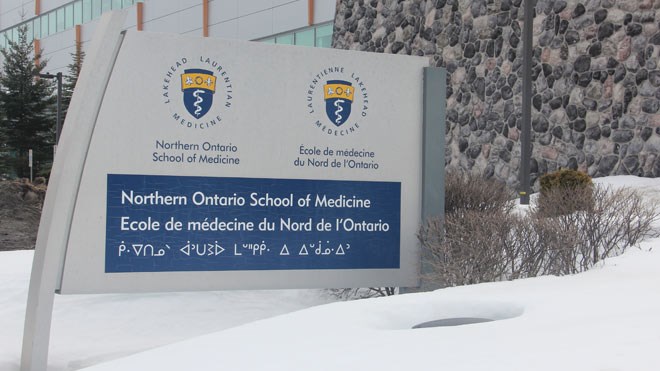The COVID-19 pandemic is giving Northern medical students a new sense of purpose for positive change in Northern communities.
The Northern Ontario School of Medicine (NOSM) had made changes to its curriculum to let fourth year MD students carry on despite not being able to work on the frontlines. NOSM faculty worked quickly to introduce a new curriculum that focused on building advocacy leadership skills that would lead to impactful change, said the school.
“The new curriculum provided students with the opportunity to pursue topics that matter to them while having real, positive impacts on patient care and population health in Northern and rural contexts,” said Dr. Erin Cameron, an NOSM assistant professor.
NOSM said the new curriculum was broken down into several parts, such as academic sessions related to the pandemic; Research and Advocacy Pandemic (RAP) Rounds — which is a forum for discussing new evidence, clinical practices and public health strategies around COVID-19 — and the Northern and Rural Health Advocacy Projects, where students identified an issue and then acted on it.
One of the examples was a recent initiative called Project Connect. Students collected gently used cell phones to be refurbished and given to survivors of domestic violence, said the school.
“Much about medicine is learning how to advocate for individual patients or advocating for change at the institutional and community levels," Cameron remarked.
“The idea was to learn from and through the pandemic in real-time, with a focus on our Northern Ontario setting,” she added.
NOSM identified fourth-year medical student Rebecca Bourdon, who is helping spearhead the Project Connect effort. Bourton said the new curriculum made a lasting impact on her.
"As future health-care providers, it is important to remain vigilant in observing, and active in addressing, any gaps in healthcare as they occur, especially those that affect unfairly disadvantaged and vulnerable groups who may be unable to adequately advocate for themselves." said Bourton.
She said the curriculum change allowed students to uncover disparities in public health that were either created by the pandemic or compounded by it.
"It gave us the opportunity to leverage our position to support and lobby for ways to address these inequities. This invaluable experience has ingrained in me the importance of being a health-care advocate, a role l will continuously strive to assume as a future physician," said Bourton.
NOSM said the goal of the advocacy projects is to complement the existing curriculum of the MD program, which is a mandatory academic requirement for the Northern and Rural Health course and Social and Population Health course.
Students are also working on other projects such as new apps, educational infographics for patient education, advocacy letters to government ministers and Members of Parliament and action plans to support mental health.
"The pandemic provides a rich teaching and learning environment that is ever evolving,” said Dr. Cameron.
“As a socially accountable medical school, this new addition to the curriculum provides students with more opportunity to be health advocates. It was a team effort and is something we will continue for years to come.”
